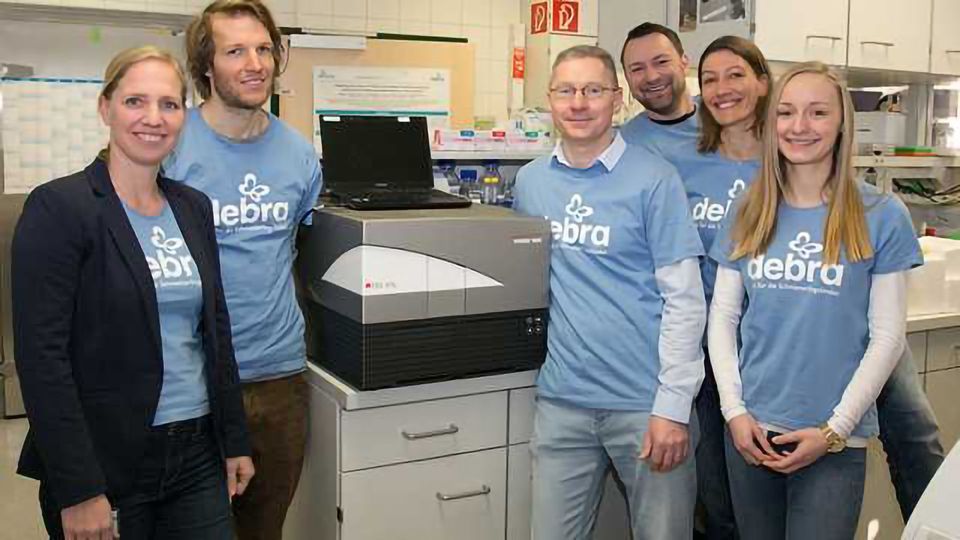Tecan's Spark® Reader Aiding Research into Rare Skin Disease

Credit: Tecan
Want to listen to this article for FREE?
Complete the form below to unlock access to ALL audio articles.
Read time: Less than a minute
Researchers at the University Hospital of Salzburg's EB House Austria are using a Tecan Spark® multimode reader to investigate epidermolysis bullosa (EB), a rare inherited disease that causes the skin to become ‘as fragile as a butterfly’s wings’, blistering in response to friction or trauma. Dr Verena Wally, group leader of small molecules research, explained: “The main aim of my group is to identify potential therapeutic targets for EB. This requires a variety of functional assays, including cell viability, proliferation, migration and invasion assays – as well as luminescence- and fluorescence-based studies."
"We purchased a Spark reader in 2016 to support our research, and it has brought huge benefits to our workflow, saving time and freeing up personnel. For example, our Spark is equipped with the Gas Control Module (GCM™) and Live Viewer™, which offers us the functionality we need to automate migration assays, instead of taking pictures with a microscope and using cell counting software or counting them ourselves. Reproducibility has been a key advantage of the new platform, as the reader removes any user bias or human error. In addition, before the Spark, we were limited to taking measurements of time points when we were actually in the lab, but this could lead to us missing the time point that would actually be important. We can now leave the plate in the reader and take readings every few hours – gone are the days when if we missed the event, we had to start from the beginning.”
"We purchased a Spark reader in 2016 to support our research, and it has brought huge benefits to our workflow, saving time and freeing up personnel. For example, our Spark is equipped with the Gas Control Module (GCM™) and Live Viewer™, which offers us the functionality we need to automate migration assays, instead of taking pictures with a microscope and using cell counting software or counting them ourselves. Reproducibility has been a key advantage of the new platform, as the reader removes any user bias or human error. In addition, before the Spark, we were limited to taking measurements of time points when we were actually in the lab, but this could lead to us missing the time point that would actually be important. We can now leave the plate in the reader and take readings every few hours – gone are the days when if we missed the event, we had to start from the beginning.”

